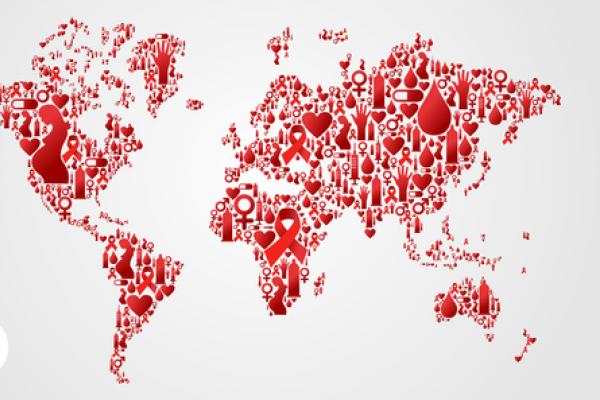A palpable feeling of hope and urgency hung heavy in the air of Washington, D.C., this week as thousands of activists descended on the nation’s capital to encourage and inspire colleagues and decision-makers to “turn the tide on AIDS.”
The International AIDS Conference 2012 has returned to the United States, thanks in part to the lifting of the HIV/AIDS travel ban by the Obama Administration in 2010, which followed work from President George W. Bush also to lift the ban.
As part of the Conference, faith leaders from across the world were invited Tuesday morning to a forum hosted by the White House. It was an opportunity to hear from U.S. and international experts and officials, as well as come together as a community of faith, standing up against the stigma and isolation which have been two of the biggest roadblocks to achieving the goal of an AIDS-free generation.
Tuesday’s event centered around two panel discussions — one examining what the faith community uniquely brings to the table in tackling the HIV/AIDS epidemic, and the other focusing on the relationship between governments and people of faith in building the effective partnerships needed to tackle it.
The tone of the discussions was, in many ways, extremely positive. We heard about vast improvements in treatments and holistic care, services often administered by faith-based organizations around the world.
“Hope,” as White House Office of Faith-based and Neighborhood Partnerships Executive Director, Joshua DuBois, noted, is overcoming “fear.”
In Washington, D.C., which has the highest rate of HIV infection in the United States, in 2009, no children were born infected with HIV. There has been “unprecedented progress in tackling this crisis” said another speaker — such quick and effective progress is virtually unknown in global health efforts.
But there is still a long way to go, and none of the speakers or panelists were arrogant enough to suggest otherwise. The investments that faith-based organizations and governments are making are paying off, but potential rollbacks in these investments (due to budgetary constraints) could see the progress slowed or halted.
Finola Finnan, a Catholic activist from Ireland put it simply: “Less with less is not a viable option if we want an AIDS-free generation.”
And it is not simply investment in scientific advancement that is important. Without continued investment in tackling the stilted dogma that still pervades the discussion on HIV, true progress will not be made.
Criminalizing or moralizing will not bring healing (physical or spiritual) to those living with HIV. This is a disease that science can only go so far to defeat. It will also take a change of hearts and attitudes to turn the tide on HIV/AIDS, once and for all.
At the heart of the discussions was the acknowledgement that this is an issue of justice. It is about giving voice to the voiceless and power to the powerless – loving those who for too long have felt alone and forgotten.
And to do that, as the inspiring Rev. Edwin Sanders told a room captivated by every word he spoke, we must ensure that there is no table where faith and the faith community isn’t represented. Our language and vision is too important to be left outside, and we should not be afraid as people of faith to ensure that there is a seat for us.
The faith community stands at a crucial intersection — able to speak truth to power with a united and prophetic voice; and also ready and able to work on the ground with those living with or affected by HIV/AIDS.
As I sat in the audience of around 200 people earlier this week, I heard story after story of people of faith changing lives around the world, by providing services for communities and offering holistic support and reconciliation for families broken apart by the virus.
I learned that “care” is about more than just drugs. Care carries with it a strong spiritual element.
With an estimated 10,000 religious leaders worldwide now living openly with HIV, according to Ugandan pastor Gideon Byamugisha — the first African faith leader to publicly reveal his HIV-positive status — the faith community can be a uniquely effective advocate for those living with the virus.
We often are best equipped to change attitudes, to communicate love to people, where previously there has been scorn, fear and even hatred. As Byamugisha said so eloquently: “We are alive. We are fighting. We are affirming.”
With love, humility and a deep sense of responsibility, people of faith around the world can bring permanent change to the lives of millions of people.
And while forums such as this in and of themselves do not necessarily make change, they can be a catalyst for it. This year’s International AIDS Conference was a powerful reminder that the stronger our voice is, the more likely we are to succeed.
That success begins with a simple, but powerful, prayer: “Give us courage to stand up and speak.”
Jack Palmer is a communications assistant at Sojourners. Follow Jack on Twitter @jackpalmer88.
Image: Cienpies Design/Shutterstock.
Got something to say about what you're reading? We value your feedback!
